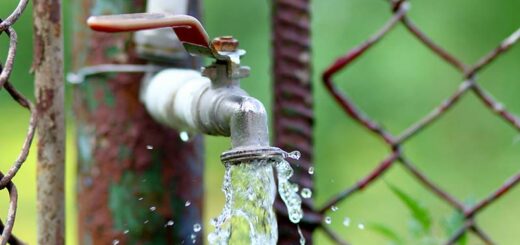Embracing Sustainability: How to Reduce Waste in Your Garden
Sustainability has become a crucial aspect of modern living as the global population continues to grow and consume resources at an unprecedented rate. Reducing waste is a critical component of sustainability, as it helps conserve natural resources, decrease pollution, and lessen the pressure on landfills and waste management systems.
In gardening, embracing sustainable practices and reducing waste benefits the environment and promotes healthier plants and more productive gardens.
Here are some key reasons why sustainability and waste reduction are essential in gardening:
Environmental benefits: Sustainable gardening practices help minimize the depletion of natural resources, such as water and soil, and reduce the use of harmful chemicals that can contaminate the environment.
By reducing waste in the garden, you can help lower greenhouse gas emissions, protect ecosystems, and conserve biodiversity.
Economic benefits: Implementing sustainable practices in the garden can save you money in the long run. You can reduce costs associated with purchasing new products by using locally sourced materials, recycling, and repurposing items.
Additionally, sustainable gardening often leads to lower water and energy bills.
Health benefits: Sustainable gardens typically rely on organic methods and natural pest control, which can reduce your exposure to harmful chemicals. By reducing waste, you also help decrease the likelihood of soil and water contamination, which can harm human health.
Improved soil quality: Sustainable gardening practices like composting and organic fertilizers help improve soil health and fertility. Healthy soil retains moisture more effectively and provides essential nutrients for plant growth, leading to more robust and resilient plants.
Enhanced garden productivity: By reducing waste and adopting sustainable practices, your garden will likely become more productive. Efficient planting techniques, proper plant selection, and improved soil health contribute to higher yields and more bountiful harvests.
Community building: Sustainable gardening often encourages community engagement, as gardeners share resources, knowledge, and experiences. This fosters a sense of belonging and promotes a stronger sense of environmental stewardship among individuals and communities.
Reusing and Recycling Garden Materials
Reusing and recycling garden materials is an essential aspect of sustainable gardening that helps reduce waste, save money, and minimize the environmental impact of your gardening practices.
You can create a more eco-friendly and resource-efficient garden by repurposing household items and creatively using garden waste. Here are some ways to reuse and recycle garden materials:
Repurposing household items: Many household items can find a second life in the garden, reducing the need for purchasing new products. Old containers, such as plastic bottles or yogurt pots, can be transformed into planters or seed starters.
Pallets can be used to build raised beds or vertical gardens, while old furniture can be upcycled into garden benches or potting stations.
Collecting rainwater: Installing a rain barrel or other rainwater harvesting system helps conserve water by capturing and storing rainwater for later use in the garden. This reduces the reliance on tap water and lowers your water bill.
Additionally, rainwater is often more suitable for plants, as it is free of added chemicals like chlorine.
Reusing garden waste: Garden waste, such as fallen leaves, grass clippings, and pruned branches, can be repurposed in various ways. Leaves can be used as mulch or added to the compost pile, while grass clippings can be left on the lawn to decompose and return nutrients to the soil.
Pruned branches can be chipped to create wood mulch or used to create wildlife habitats or garden structures like trellises.
Recycling plant pots and containers: Many garden centers and nurseries accept used plastic pots and trays for recycling. By returning these items, you can help reduce the amount of plastic waste in landfills.
Alternatively, consider using biodegradable pots made from materials like peat or coir, which can be planted directly into the ground and will decompose over time.
Sharing tools and equipment: If you have tools or equipment that you rarely use, consider sharing them with friends, neighbors, or community garden groups. This reduces waste and resource consumption and strengthens social connections within the gardening community.
Reusing garden structures: Garden structures, such as trellises, arbors, or fencing, can often be reused or repurposed in the garden. If you’re updating your garden design or replacing damaged structures, consider creative ways to incorporate the old materials into your new layout.
Advantages of mulching in waste reduction
Mulching offers various advantages in waste reduction, as well as providing numerous benefits for the garden. Here are some of the key advantages of mulching in waste reduction:
Recycling garden waste: Mulching provides an opportunity to recycle and repurpose garden waste such as leaves, grass clippings, and wood chips. By using these materials as mulch, you reduce the waste sent to landfills and make better use of the resources already available in your garden.
Reducing water waste: Mulch helps to conserve water by reducing evaporation from the soil surface. This means less water is needed for irrigation, reducing water waste and lowering water bills. The improved water retention also benefits plants by providing more consistent moisture levels in the soil.
Suppressing weeds: Mulching helps to stop weed growth by creating a physical barrier that makes it difficult for weeds to germinate and grow. Reducing weed growth minimizes the need for chemical herbicides and the waste associated with their production, transportation, and use.
Additionally, less time and effort are required for manual weed removal.
Improving soil health: Organic mulches, such as leaves, grass clippings, or wood chips, decompose over time and release nutrients into the soil, improving its fertility and structure. This reduces the need for synthetic fertilizers and the waste associated with their production and use.
Healthier soil also contributes to more robust and resilient plants, which require fewer resources and generate less waste.
Erosion control: Mulch helps prevent soil erosion by protecting the soil surface from rain and wind. This helps maintain soil quality and reduce the need for soil amendments, decreasing waste and resource consumption.
Moderating soil temperature: Mulch acts as an insulator, keeping the soil cooler in hot weather and warmer in cold weather. This helps to reduce temperature fluctuations that can stress plants and lead to waste in the form of damaged or dead plants.
Habitat creation: Organic mulches can provide a habitat for beneficial insects, such as ground beetles and spiders, which help control pest populations naturally. This reduces the need for chemical pesticides and the waste associated with their production and use.
Minimizing Plant Waste
Here are some tips on how to minimize plant waste in your garden:
Efficient planting techniques: Use companion planting, succession planting, and intercropping techniques to optimize garden space and productivity.
These methods help reduce plant waste by encouraging efficient use of available resources and providing better protection from pests and diseases.
Proper plant selection: Choose plants well-suited to your local climate, soil conditions, and available space. Native plants and cultivars with proven disease resistance and pest tolerance will require fewer resources and are less likely to succumb to problems that generate waste.
Pruning and training: Regular pruning and training of plants help maintain a healthy and manageable size, ensuring that plants receive adequate light, air circulation, and nutrients.
This reduces the risk of pest infestations and diseases, minimizing the need to remove and dispose of affected plant parts.
Harvesting and deadheading: Timely harvesting of fruits, vegetables, and flowers ensures that plants continue producing throughout the growing season. Deadheading, or removing spent flowers, encourages plants to produce more blooms and prevents the unnecessary allocation of resources to seed production.
Composting: Compost any plant waste not diseased or infested with pests. This includes leaves, stems, and other plant parts that can be broken down and returned to the soil as valuable nutrients, reducing the need for external fertilizers.
Reusing plant material: Use materials such as pruned branches, leaves, or grass clippings for other purposes in the garden, such as mulch, wildlife habitat, or garden structures. This helps to reduce waste while providing additional benefits to your garden ecosystem.
Pest and disease management: Implement an Integrated Pest Management (IPM) approach to minimize plant damage and waste due to pests and diseases.
Encourage beneficial insects, use physical barriers, and practice crop rotation to maintain a healthy garden environment and reduce plant waste.
Sharing surplus: Share excess plants, seeds, or produce with friends, neighbors, or community organizations. This reduces waste by ensuring that resources are used efficiently and fosters community and gardener cooperation.
Final Thoughts
In conclusion, sustainable gardening practices, including waste reduction, mulching, and minimizing plant waste, are crucial in creating a healthier and more environmentally friendly garden.
By adopting these techniques, gardeners can conserve resources, reduce their ecological footprint, and enjoy the benefits of a thriving and productive garden.
Furthermore, embracing sustainability in gardening contributes to the well-being of the environment and fosters a sense of community and cooperation among gardeners.
As we strive towards a greener future, incorporating sustainable practices in our gardens is an essential and rewarding endeavor.



